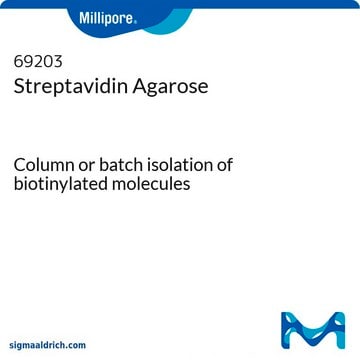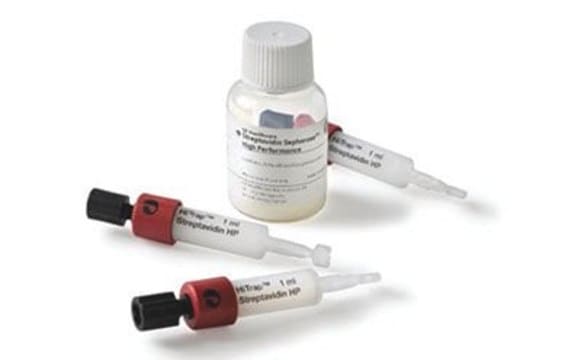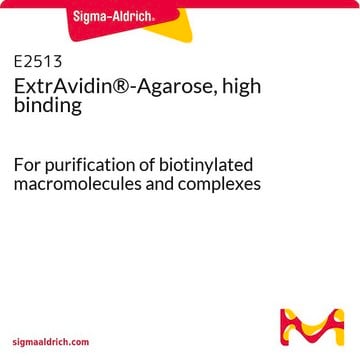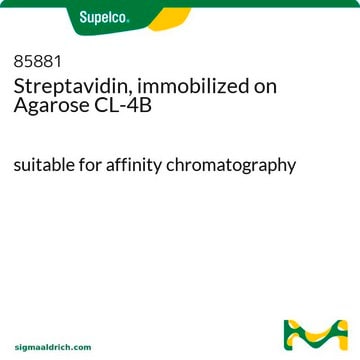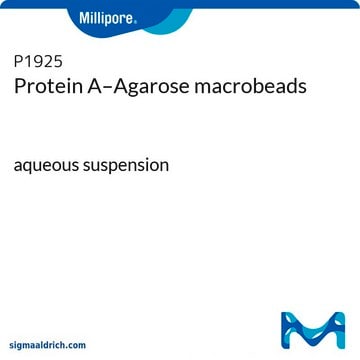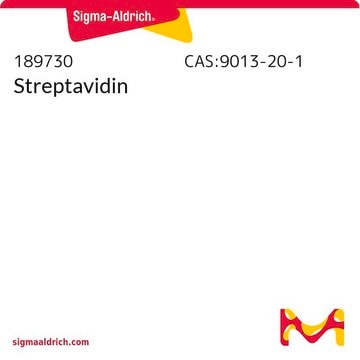A9207
Avidin−Agarose from egg white
aqueous glycerol suspension
Sinónimos:
Avidin agarose
About This Item
Productos recomendados
biological source
egg white
conjugate
agarose conjugate
form
aqueous glycerol suspension
matrix
cross-linked 6% beaded agarose
matrix activation
epichlorohydrin
matrix attachment
amino
matrix spacer
15 atoms
storage temp.
−20°C
Categorías relacionadas
General description
Application
- in the precipitation of biotin tagged protein by pull down assay in neuroblastoma cell line (SH-SY5Y )
- in the purification of Lewis(x) sugar binding proteins from Schistosoma mansoni
- in avidin bead assay for purification of labelled biotin
- for capture of glycoproteins from murine cornea samples
Biochem/physiol Actions
Unit Definition
Physical form
Storage Class
10 - Combustible liquids
wgk_germany
WGK 3
flash_point_f
Not applicable
flash_point_c
Not applicable
Certificados de análisis (COA)
Busque Certificados de análisis (COA) introduciendo el número de lote del producto. Los números de lote se encuentran en la etiqueta del producto después de las palabras «Lot» o «Batch»
¿Ya tiene este producto?
Encuentre la documentación para los productos que ha comprado recientemente en la Biblioteca de documentos.
Los clientes también vieron
Contenido relacionado
Análisis, reactivos y protocolos de precipitación pull-down para investigar las interacciones interproteicas in vitro utilizando métodos de atenuación de precipitación por afinidad o GST, purificación por afinidad en tándem (TAP) y coinmunoprecipitación.
Investigate in vitro protein-protein interactions with pull-down assays, utilizing affinity, GST pull-down, TAP, and co-immunoprecipitation methods.
Nuestro equipo de científicos tiene experiencia en todas las áreas de investigación: Ciencias de la vida, Ciencia de los materiales, Síntesis química, Cromatografía, Analítica y muchas otras.
Póngase en contacto con el Servicio técnico
